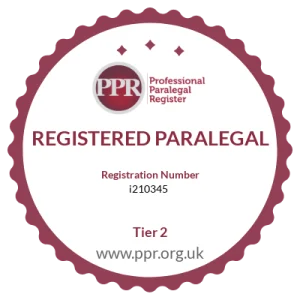When it comes to international litigation, ensuring that legal documents are properly served across borders is not only a matter of courtesy—it is a matter of law. The 1965 Hague Service Convention on the Service Abroad of Judicial and Extrajudicial Documents (commonly known as the Hague Service Convention) created a framework to simplify and standardize how service of process is carried out between member states.
Not every country accepts service by mail/post. Some expressly authorize it, while others object and prohibit it. This divergence creates major risks for law firms and litigants who attempt to serve documents internationally without checking first.
What Article 10(a) Really Means
Article 10 of the Hague Service Convention outlines alternative methods of service beyond the Central Authority mechanism. Subsection 10(a) states:
“Provided the State of destination does not object, the present Convention shall not interfere with… the freedom to send judicial documents, by postal channels, directly to persons abroad.”
Key Takeaways:
-
Default Rule: Article 10(a) permits service by mail/post.
-
Exception: If the destination country objects, then mail service is not valid.
-
Impact: Whether service by postal channels is recognized depends entirely on the country where the documents are being served.
Why This Matters for Law Firms and Litigants
Choosing the wrong service method can have devastating consequences:
-
Invalid Service: Courts may dismiss a case or refuse to recognize a judgment.
-
Delays: Incorrect service can push proceedings back by months or even years.
-
Wasted Costs: Filing fees, courier charges, and legal expenses may all be lost.
This is why law firms, in-house counsel, and individuals working on cross-border litigation should always verify a country’s Hague Service Convention declarations before attempting service.
Countries That Allow Service of Process by Mail (Article 10(a))
The following countries do not object to service by postal channels and generally allow it under the Hague Service Convention:
-
Australia
-
Austria
-
Belgium
-
Canada (except in Québec, where additional rules apply)
-
Denmark
-
Finland
-
France
-
Germany (with some caveats for certain types of cases)
-
Ireland
-
Israel
-
Italy
-
Luxembourg
-
Netherlands
-
Norway
-
Portugal
-
South Africa
-
Spain
-
Sweden
-
Switzerland
-
United Kingdom (England & Wales, Scotland, Northern Ireland)
-
United States
Note: Even in these countries, some courts require proof of actual receipt (signed acknowledgment, tracking records, etc.) for mail service to be deemed valid.
Countries That Object to Service of Process by Mail (Article 10(a))
The following countries have formally objected to Article 10(a) and therefore do not allow service via postal channels:
-
Argentina
-
Bulgaria
-
China (including Hong Kong & Macau SARs)
-
Czech Republic
-
Egypt
-
Greece
-
India
-
Japan (since December 21, 2018, explicitly objected)
-
Kuwait
-
Mexico
-
Poland
-
Russian Federation
-
South Korea
-
Sri Lanka
-
Turkey
-
Ukraine
-
Venezuela
-
Vietnam
Practical Tip: If you attempt mail service in these countries, the service is almost certain to be ruled invalid. Always use the Central Authority method or another formally accepted route.
Mixed or Conditional Acceptance
Some countries have special conditions for postal service under Article 10(a):
-
Canada (Québec): Local law requires service via bailiff, not postal service.
-
Germany: While not objecting outright, some German courts have restricted postal service in sensitive cases.
-
Switzerland: Allows mail service, but proof of delivery is heavily scrutinized.
-
Italy: Technically permits it, but practical enforcement may still require Central Authority service.
Non-Judicial Documents
It’s also worth noting that Article 10(a) technically refers to judicial documents. For non-judicial documents (such as demand letters, notarizations, or private contracts), many countries allow broader freedom in using postal channels. However, litigants should still exercise caution and verify local laws.
Why Professional Assistance is Essential
International service of process under the Hague Convention is not a do-it-yourself task. With differing country declarations, strict deadlines, and evidentiary requirements, even small mistakes can derail a case.
That’s where a trusted partner like Stellar Konsulting comes in.
How Stellar Konsulting Helps:
-
Comprehensive Assessment of Country Declarations Under the Hague Convention
-
Preparing and submitting requests to foreign Central Authorities.
-
Advising on whether Article 10(a) mail service is valid in your case.
-
Ensuring compliance with translation requirements and proof of service standards.
-
Delivering reliable updates so clients never miss a deadline.
Practical Implications
Article 10(a) of the 1965 Hague Service Convention is one of the most misunderstood provisions in international litigation. While it opens the door for service by mail/post, its applicability depends entirely on whether the destination country allows it.
-
If allowed: Mail service can save time and costs.
-
If prohibited: Attempting it can invalidate service and jeopardize the case.
For lawyers, law firms, corporate legal officers, and private litigants, the key is verification. Always check the country’s official Hague declarations—or work with a professional international process server who has the expertise and global network to do it for you.
For reliable assistance with Hague Service Convention and Article 10(a) compliance, contact Stellar Konsulting at the phone numbers listed below or email us at operations@stellarkonsulting.com for an obligation-free quote covering the timelines, options and costs for international service of process.
📞 EMEA: +44 (20) 38905643
📞 USA: +1 (213) 786 1161
📞 Asia: +92 313-780-6280
📞 UK: +44 (20) 38905643
📞 Australia, New Zealand and Far East Asia: +61 2 7259 7299



















